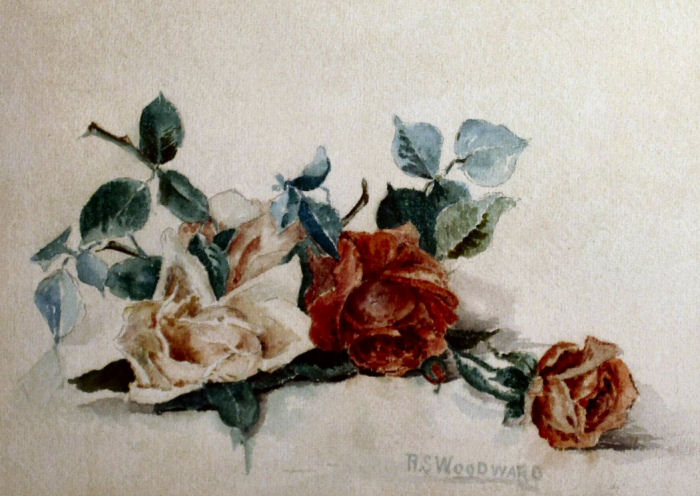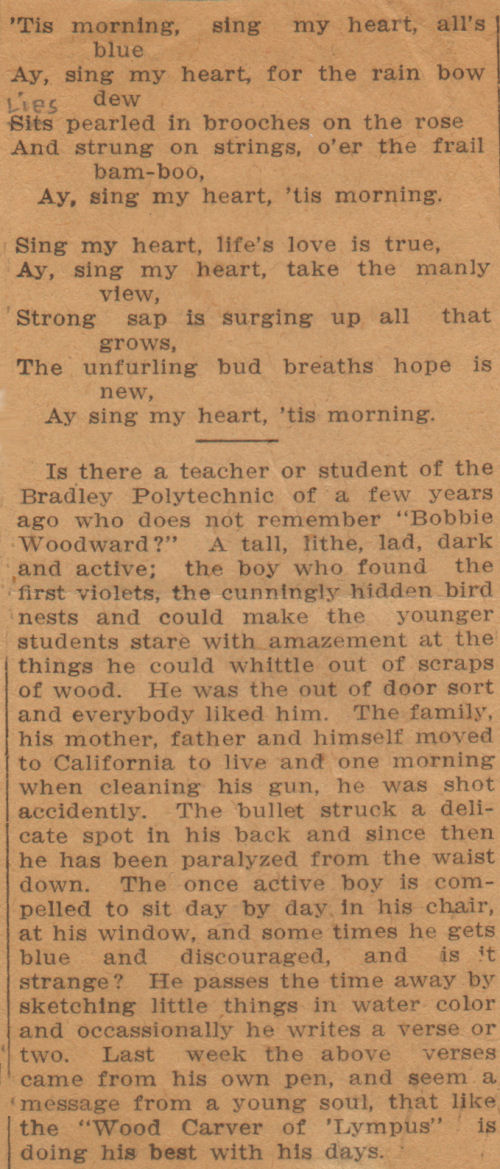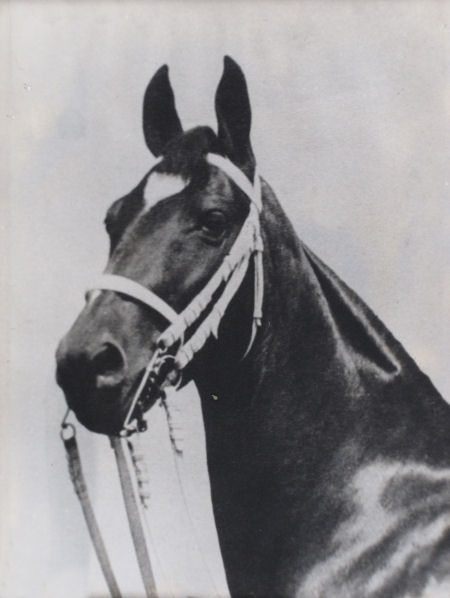Robert Strong Woodward Poetry


Roses for Mother - a watercolor Robert Strong Woodward painted for his mother for Valentine's Day
Roses For Mother
(Written for his mother on Valentine's Day
when RSW was about 14 years old)
If the first artist who painted the roseHad made the leaves blood red
And had put their natural color
Into the rose instead,
How many years the rose would have
(With a thorn or two mixed in),
How many hearts to be broken
Yet how many others to win?
But this is only an "If" dear
But if it were quite true
And I had twice as many hearts
Each one would be for you.
Robert Strong Woodward

The first poem after the accident
The first published poem after the accident
'Tis morning, sing my heart, all's blue
Ay, sing my heart, for the rain bow dew
Lies pearled in brooches on the rose
And strung on strings, o'er the frail bam-boo,
Ay, sing my heart, 'tis morning.
Sing my heart, life's love is true,
Ay, sing my heart, take the manly view,
'Strong sap is surging up all that grows,
The unfurling bud breaths hope is new,
Ay sing my heart, 'tis morning.
Is there a teacher or student of the
Bradley Polytechnic of a few years
ago who does not remember "Bobbie
Woodward?" A tall, lithe, lad, dark
and active; the boy who found the
first violets, the cunningly hidden bird
nests and could make the younger
students stare with amazement at the
things he could whittle out of scraps
of wood. He was the out of door sort
and everybody liked him. The family,
his mother, father and himself moved
to California to live and one morning
when cleaning his gun, he was shot
accidently. The bullet struck a delicate
spot in his back and since then
he has been paralyzed from the waist
down. The once active boy is compelled
to sit day by day in his chair,
at his window, and some times he gets
blue and discouraged, and is it
strange? He passes the time away by
sketching little things in water color
and occassionally he writes a verse or
two. Last week the above verses
came from his own pen, and seem a
message from a young soul that like
the "Wood Carver of 'Lympus" is
doing his best with his days.
WINTER
Gay Winter, with thy blue and snow-white graceWhy will the poets ever pen thee drear,
Unkind and dull , thy keen eyes rough and blear,
Thy blythe smile but a withered, wrinkled face?
Why term thy glad and whistling tree-top race
A storm to dread, an enemy to fear?
Why never note thy jaunty boutonniere
Of scarlet berries sprigged on branches' lace?
Slow summer surfeits art with sticky green,
Discordant colors on her gown lie crowded,
While thou art simple in thy changing sheen
Of white, of green and violet, frost shrouded.
The loveliest season in the circled year!
O Winter, thou art charged with gallant sheer!
Robert Strong Woodward
THE ARTIST
I looked into his face and sawThe dream cloud come and go,
The summer calm, the winds of snow,
And understood how no man's law
Controlled, or could control
The genius of a Master Soul
Expressing only what he saw
Not with the eyes of common men,
But with the eyes that, now and then
God gives to those He makes to draw
From his created things the thought
Embodied in what He has wrought.
The things themselves, and these he saw.
Robert Strong Woodward
WHITE HEART
The great God Spirit bending lowHath deemed it best to take from thee
Thru Death--whose coming none can know
Whose ways are ever mystery
Hath deemed it best (tho tears shall flow)
To take thy White Heart in her glow
Of perfect life and symetry.
Thy White Heart in whose glancing eyes
There shone affection for a friend
Thy White Heart, in whose moves, a wise
Intelligence and grace did blend--
In whose arched throat and gleaming thighs
Pulsed Pride of Life, which ever tries
To prove that Beauty is Life's end.
White Heart! whose virtues mingled deep
With glint of curved and shining limb;
With eyes like forest pools asleep
Where autumn umber crowds the rim;
With varied fleetness records keep;
With gentle ways (spite mettled leap)
With Spirits surging o'er their brim.
Yes, well to weep, since from this earth
Such noble beauty passes on;
Yes, tears are meet and charged with worth
That flow for such a paragon
of form, affection and proud birth!
Such sorrow does not spring from dearth
Of reason--but from Helicon.
For beauty foiled by Death's dread dart,
Perfection turned to earthly mold
Could not but grieve a sentient heart,
Could not leave love-emotions cold---
Tho the most rueful, stinging smart
Comes from the wound that one must part
From what affection learns to hold.
Yes do not let thy burning grief
Long fail to feel the cooling thot
Nor sorrow shun the high relief
That God knows what His hand has wrought,
And from Life's Tree, not one small leaf
Lets fall before its plan is fraught.
Robert Strong Woodward

Photograph of the beloved horse White Heart
Note the white heart on the horse's forehead
The following is a letter from the owner of he horse, White Heart.
One of my oldest and most intimate friends is Robert Strong Woodward. Our acquaintance began years ago when I was living in Thompson and it was soon after I saw and bought a fine painting of his that was on exhibition at Mr. Gardner's Art Store in Boston.I found him a very agreeable person and long acquaintance has proved him to be not only a fine gentleman but an artist of great ability and skill, hard working with unbounded courage that has overcome in great measure a physical disability that would overwhelm most men.
He has visited me here in Putnam and when I was summering in Vermont we had many fine drives over the beautiful hills, but it was when he visited me here in Thompson that he showed the greatest interest in my horses.
When I lost my beautiful "White Heart", he sent me the remarkable Tribute that I have placed on the page below. Just below this I shall have copied part of an editorial from a Boston paper:
R. S. Woodward
The literary fellows say that the style of a man is the man himself, and some of the sharp-eyed critics of the canvas profession's ability is to see the painter himself behind the paint. But in many cases the brush and the pen reveal little or nothing of the persons who wield them.
Parkman's 'Pioneers' is written as if the author were overflowing with the zest of life. One of our finest American authors had been harshly buffeted by physical infirmities since boyhood, yet he interpreted his subjects as charitably and cheerily as if his cheeks were glowing with youth and the sun and the wind.
A striking example of the same sort of thing now comes to notice in the announcement that Robert Strong Woodward has won second prize at the show of Contemporary American Oils at the Boston Art Club.
Mr. Woodward was permanently injured in an accident many years ago. His injuries are so severe that he is unable to walk. He is carried around bodily - an almost hopeless handicap, it would seem, when a man is a landscape painter and must wander around continually in search of scenes. Yet the Woodward paintings, his Berkshire trees especially, have the power, grace and brilliance which might glow from an energetic man determined to tell people what a magnificent joy he has in painting, and what glory can be snatched from a bit of woodland.
(Signed)
Mrs. George D. DresserPlease click on the following links for further information on the relationship between RSW and Mrs. Dresser. The first is a link to an still life oil painting in which he state in his diary depicts a silk cloth given to him by Mrs. Dresser
Apples and Silk
The second link goes to a window painting which includes a glass red cup with the writing "Remember Me." Scroll down for a closeup.
Spring Window
Another window painting which includes the red mug is the following:
Out The North Window
MLP
December 2012

